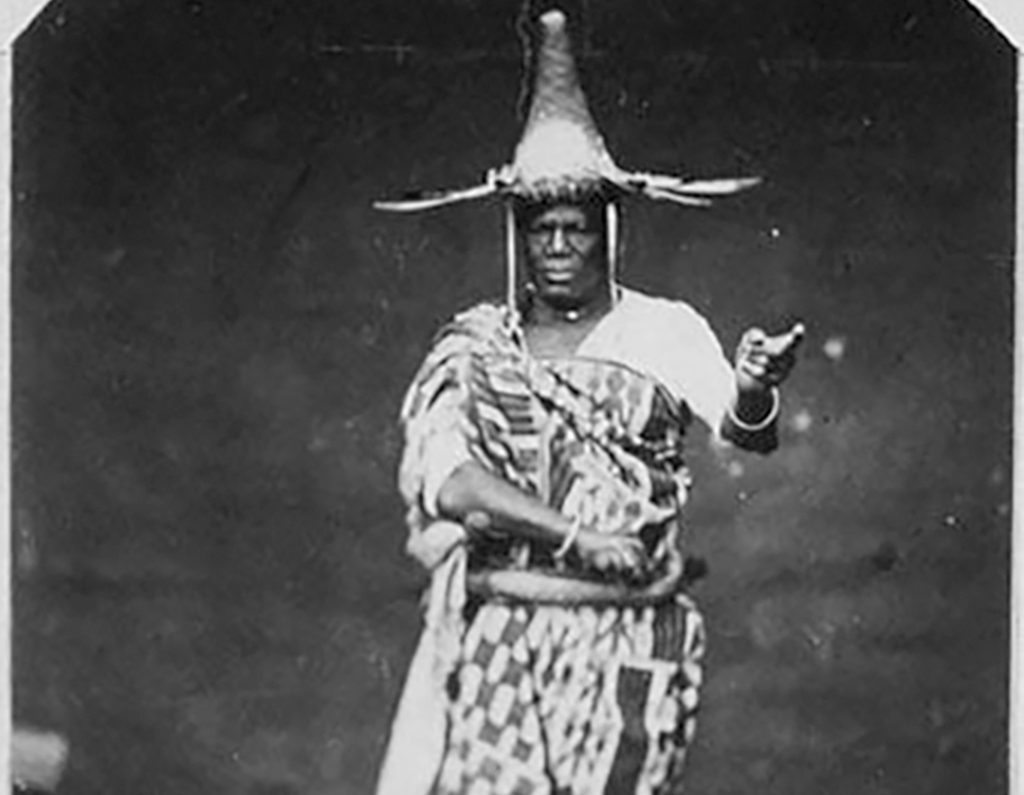Jubo Jubogha started out as a slave and ended up a king in what is now southern Nigeria. Along the way, he became one of the richest men of his time. Today he is remembered as one of the master strategists of the 19th century.
Jubo, later named Jaja, was born in 1821 in a village in what is now Nigeria’s Imo State. As a boy, he was sold into slavery and sent to Chief Madu of the Anna House, one of the two royal family houses in the Bonny coastal region.
In the 19th century, the Niger River Delta was a trade hub with Europe and America. Delta communities shipped Western goods to the region’s interior and returned with palm oil for export. In the delta, with its swamps, rivers and creeks, the canoe was the engine of commerce.
Canoes and their operators were organized into “canoe houses,” led by wealthy merchants, along with relatives, workers and slaves. Some of the houses had hundreds of canoes and thousands of members. In this competitive society, status was based purely on merit and accomplishments. Although a slave could never become a king, a hardworking, ambitious slave could become the leader of a canoe house.
Young Jaja started off with the lowest status in the Anna House — an imported slave, considered inferior to a locally born slave. He worked as a paddler, and even as a boy, he demonstrated a rare affability combined with honesty and genuine business sense. As a young man, he made the uncommon transition from paddler to trader, and he prospered.
In 1863, the leader of the Anna House died, leaving behind staggering debt. The established chiefs refused to take over the house because of the money owed. Jaja accepted the debt and reorganized the house, using his business talents to forge tight relationships with palm oil buyers and sellers. As he prospered, struggling canoe houses asked to consolidate with him. His empire grew.
His trading rivals were consumed with jealousy, and one, Oko Jumbo, wanted to destroy him. In 1868, he got his chance when a terrible fire swept through Bonny. Jaja’s canoe house took the worst of it. Seeing his rival’s financial empire crippled, Oko Jumbo went to war with him the next year.
Jaja was outmanned in the battle and retreated from Bonny. He demanded an end to the fighting, with British officials stepping in to handle negotiations. What Jaja actually was doing was stalling for time — time to reorganize and move his empire north to lands along the Imo River — a spot ideal for trade with palm oil producers and a safe distance from his rivals. The location was perfect. Historians wonder whether Jaja might have been planning to move there all along.
In 1870, Jaja named his new settlement Opobo and proclaimed himself King Jaja, something he could never have done in Bonny. Such was his magnetism and intelligence that 14 of the 18 canoe houses of Bonny moved to Opobo to be ruled by the new king. In defeat, Jaja had found total victory.
Jaja blocked British access to the interior, giving him a trade monopoly. His financial domination of the region came largely at the expense of the Bonny region — and the British.
The British merchants had ambitions. Despite acknowledging Jaja as king, they wanted his territory. In 1887, a consul sailed to Opobo on a fighting ship and demanded a meeting, insisting that Jaja would be free to leave after their discussion.
The consul had lied. Instead of releasing Jaja, he was deported to what is now Ghana. There, he was convicted of breaking a treaty with Britain and blocking free trade. He was exiled to the West Indies. In 1891, he was given permission to return to Opobo, but he died en route.
He remains today a subject of fascination for historians, mostly for his courage in standing up to the British. But, as This is Naija magazine noted, he also is studied for his “remarkably high quality of economic wizardry and entrepreneurship.”

